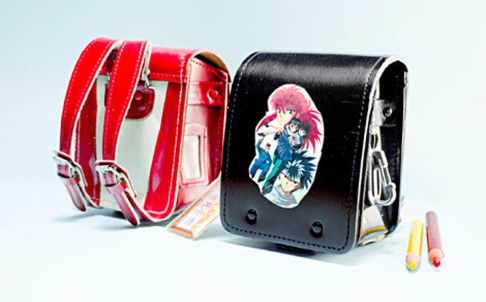Japanese school backpacks become a hit with Chinese tourists
PUBLISHED : Monday, 22 September, 2014, 10:40pm
UPDATED : Tuesday, 23 September, 2014, 4:19am
Julian Ryall in Tokyo

Traditional randoseru school bags. Photo: SCMP Pictures
The traditional Japanese primary-school child's backpack has become the surprising must-have souvenir for foreign visitors to Japan this year.
Known locally as randoseru - from the Dutch word ransel for backpack - the sturdy and durable bags are generally presented to children before their first day of primary school by grandparents. But a falling birth rate means that the largest manufacturers of the bags have had to look elsewhere for buyers.
"Our largest market is still Japan and we are not thinking about exporting our randoseru to foreign markets, but we are very happy that they have become hit products with tourists," said Takuya Tsumura, a spokesman for bag manufacturer Seiban.
"We are finding that many Chinese tourists like to buy them," he added. "We think it is because the bags often appear in Japanese animated movies, which are very popular in China."
Chinese consumers are also impressed with the high quality of the bags, he said, as they need to be built to withstand the inevitable rough handling they get at the hands of youngsters.
Hard-sided and constructed from stiff leather or synthetic leather, randoseru have traditionally been either black or red.
Now, however, Seiban is producing the backpacks in a wide range of colours, with those in pastel shades among the most popular with tourists.
To cash in on their popularity, Hyogo prefecture-based Seiban has expanded its sales outlets from department stores and children's shops and in May opened a dedicated randoseru store in Tokyo's trendy Harajuku district.
The bags do not come cheap. Standard versions are selling for around 50,000 yen (HK$3,550), but top-of-the-range versions and new releases are retailing for more than 60,000 yen.
More outlets have also been launched in the duty-free lounges at major airports, including Kansai International Airport, close to Osaka.
Seiban reported that its Kansai store has sold more than 120 bags in less than three months.
